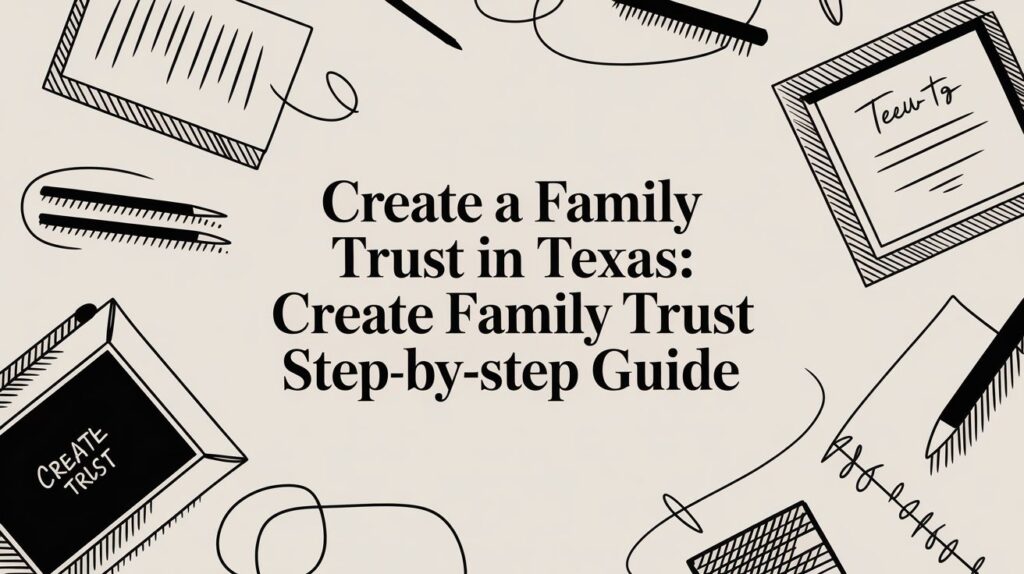Navigating the probate process can feel like stepping into a maze—one filled with legal jargon, filing deadlines, and emotional weight. That’s why having access to local probate court resources is more than helpful—it’s essential. Whether you’re an executor, beneficiary, or just someone trying to settle a loved one’s affairs, understanding what resources are available in your area can make all the difference between a smooth process and a legal nightmare.
In this guide, we’ll walk you through the most critical local probate court resources you need to know, unpack how to use them effectively, and explore real-life stories where these resources made or broke an estate case. You’ll get more than just a list—you’ll get clarity, context, and a better sense of what to expect as you walk into the world of probate court.

What Is Probate and Why Do You Need Local Resources?
The Legal Process That Follows Loss
Probate is the court-supervised legal process for settling a deceased person’s estate. It ensures that debts are paid, assets are distributed according to the will (or state law if there’s no will), and legal formalities are followed. While probate laws are governed at the state level, probate happens in local courts, which means each jurisdiction has its own procedures, forms, deadlines, and nuances.
That’s where local probate court resources come in. They provide specific, actionable guidance based on your county or municipality. Without them, you’re relying on generic internet advice—which can steer you wrong fast.
Why One Size Doesn’t Fit All in Probate
Every County Has Its Own Rules and Resources
The rules for filing documents, attending hearings, and notifying heirs can vary greatly between counties—even within the same state. Some counties require original death certificates; others accept copies. Some probate courts let you file online; others demand in-person appointments.
For example:
- Travis County, Texas uses an e-filing system but still requires certain forms to be notarized.
- Cook County, Illinois mandates in-person appearances for many hearings.
- Maricopa County, Arizona offers free workshops to help self-represented parties.
So, when we talk about local probate court resources you need to know, we mean the specific, localized tools that help you succeed under your court’s rules—not someone else’s.
Where to Start: Your County Probate Court Website
Your First and Most Reliable Resource
Nearly every probate court maintains an official website filled with essential local probate court resources. These often include:
- Downloadable forms (petitions, inventory sheets, waivers)
- Fee schedules
- Instructions for opening and closing estates
- Contact information for court clerks
- Online case lookup tools
- Calendars for hearings and filing deadlines

These websites aren’t flashy, but they’re goldmines of information—especially if you’re trying to probate an estate without hiring an attorney. Bookmark it, check it frequently, and don’t be afraid to call the clerk’s office with questions.
Probate Clerks: The Gatekeepers of Process
More Helpful Than You Might Think
Probate clerks are often overlooked as a resource, but they can be incredibly helpful. While they can’t give legal advice, they can guide you on how to fill out forms, what documents you need, and how to file them correctly. They’ll also inform you of upcoming deadlines and hearing schedules.
Take Marcus, for example. After his father passed away in Harris County, Texas, he tried to manage the estate on his own. He was drowning in paperwork until a probate clerk patiently walked him through the correct filing order. Thanks to that interaction, Marcus avoided a costly delay in processing the estate.
This is why one of the top local probate court resources you need to know is the court staff themselves. A few questions can save you weeks of frustration.
Self-Help Centers and Probate Clinics
Free Guidance from Real People
Many jurisdictions now offer self-help legal centers inside the courthouse or as part of community outreach programs. These centers may host:
- Free probate legal clinics
- DIY guides and worksheets
- Volunteer attorneys for Q&A sessions
- Public seminars about executor duties
For example, Los Angeles County has a dedicated probate self-help desk staffed by volunteers and paralegals. Anyone handling a small estate can schedule an appointment and get help with filing, understanding timelines, and avoiding common mistakes.
If you’re representing yourself, this might be the single most valuable item in your toolkit of local probate court resources.
Law Libraries and Probate Manuals
Don’t Overlook These Research Gems
Most counties have public law libraries either inside the courthouse or nearby. These libraries contain:
- Probate-specific legal books
- Court procedure manuals
- Sample completed forms
- Statutes annotated with case law
Some even offer research assistance from legal librarians who can guide you through how to read case law or find the right template.
Let’s say you’re trying to file a petition to remove an executor who’s mismanaging assets. Your county law library probably has real examples you can follow—and that’s a level of detail you won’t get from a Google search.
These libraries are often free, open to the public, and massively underused. That makes them one of the best-kept secrets among local probate court resources you need to know.
Online Probate Portals and E-Filing Systems
When the Courtroom Goes Digital
In many urban counties, the days of waiting in line to file a form are over. Courts now offer e-filing portals where you can:
- Submit forms electronically
- Pay filing fees online
- Track case status in real-time
- Receive alerts for court updates
For example, Dallas County, Texas, uses an online system called eFileTexas. Once you create an account, you can manage the entire probate process from home.
However, don’t assume your county is on board with the digital revolution. Always verify what your specific court accepts electronically. That’s why staying plugged into the right local probate court resources is crucial—they’ll tell you whether tech is your friend or if you still need to bring documents to a window at the courthouse.

Legal Aid and Pro Bono Probate Help
Because Not Everyone Can Afford a Lawyer
If you qualify as low-income or are managing a small estate, you may be eligible for free legal help from:
- Legal aid societies
- State bar association programs
- Law school legal clinics
- Faith-based legal outreach programs
In Bexar County, for instance, St. Mary’s Law School partners with the courts to offer free probate consultations. Similarly, in New York City, Legal Services NYC provides estate planning and probate help for seniors and low-income families.
If attorney fees are out of reach, these are the local probate court resources you need to know. They won’t just save you money—they’ll save your case.
Alternative Dispute Resolution (ADR) Services
A Smarter Way to Settle Probate Disputes
Not all probate issues need to end in courtroom battles. Many counties now offer mediation or alternative dispute resolution (ADR) programs for probate cases. These are especially useful for:
- Will contests
- Family disputes over assets
- Executor disagreements
- Guardianship arguments
In Travis County, ADR programs are built right into the probate court’s framework. Parties are encouraged (and sometimes required) to attempt mediation before going to trial.
For emotionally-charged estates, these are local probate court resources that help keep families out of full-blown legal wars.
Language Assistance and ADA Services
Making the Process Accessible to Everyone
Court systems are recognizing the need for language and disability access in probate cases. Many local courts offer:
- Certified interpreters for hearings
- Translated documents and instructions
- Assistive listening devices
- Wheelchair-accessible hearing rooms
Don’t be afraid to ask for accommodations when dealing with local probate court resources. Courts are obligated under federal law to make proceedings accessible—and most do so willingly when requested in advance.
Local Probate Court Resource Example: Harris County, Texas
Let’s break down what local probate court resources look like in a real-world setting. In Harris County, one of the busiest counties in the U.S., you’ll find:
- A dedicated probate court website with forms, filing guides, and hearing calendars
- Online access to the Texas e-filing portal
- Probate courts that specialize in estate matters
- A public law library with estate law manuals
- Volunteer attorneys through Houston Volunteer Lawyers
- An onsite self-help desk for walk-in assistance

Whether you live in Houston or a rural part of Texas, Harris County shows what’s possible when a court system invests in public access.
Real-Life Story: When a Local Resource Saved the Day
Diane, a schoolteacher in El Paso, tried to probate her late brother’s estate using a DIY kit she bought online. It turned out to be for the wrong state. Confused and frustrated, she visited the county courthouse, where a probate clerk directed her to the legal aid desk.
There, a volunteer lawyer walked her through the correct Texas forms and even helped her set up an e-filing account. What could have taken six months and thousands in lawyer fees was resolved in just over a month.
That’s the power of local probate court resources you need to know—they turn chaos into clarity.
Final Thoughts on Local Probate Court Resources You Need to Know
Probate is hard—but it doesn’t have to be impossible. While no article can eliminate the stress of losing a loved one, understanding the local probate court resources you need to know can make your journey through the legal system far less daunting.
Whether it’s a helpful court clerk, a law library filled with guides, or a free legal clinic willing to walk you through forms, there are tools available to support you. You just have to know where to look—and now, you do.
Take the time to research what your county offers. Call the probate clerk’s office. Visit your local court’s website. And don’t hesitate to ask for help. Because in the world of probate, the right resource at the right time can make all the difference.








